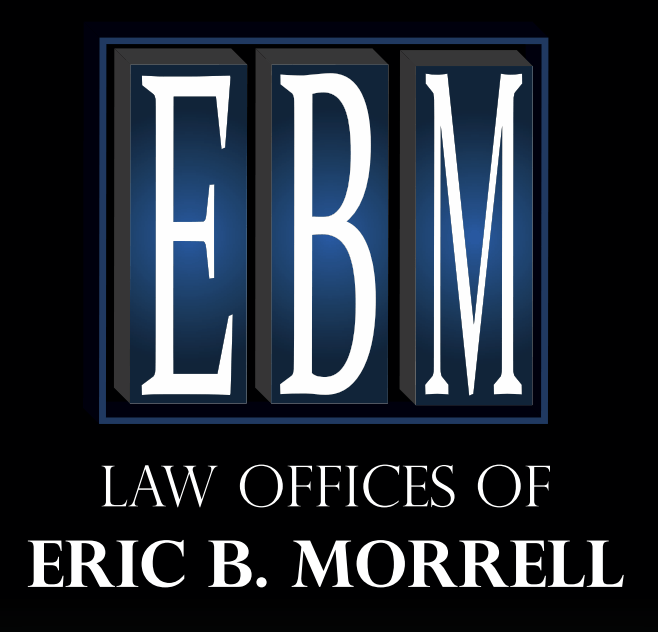Client Login
×NJ Supreme Court Now Limits Police Officers Narration of Video Evidence During Trial
Video discovery is very essential to clients’ cases. At the Law Offices of Eric B. Morrell, when we receive discovery, we take the time to carefully review it and take detailed notes. Video discovery which may include body camera footage allows us to take a more in depth look of a client’s case. We always look out for anything out of the ordinary or something we can use that will benefit our client and allow us to obtain a better result. We also do this in the event that we may have to show the Judge what occurred in the video. In a recent case, State v. Dante C. Allen (A-55-21) (086699) the NJ Supreme Court considered whether the defendant was denied a fair trial due to the trial court admitting a detective’s testimony where he narrated a video. Our offices have guidance from the NJ courts when this inappropriate narration occurs.
On November 4, 2015, defendant Dante Allen was speaking to a friend outside while carrying a firearm. Mr. Allen had recently obtained the handgun after a confrontation with a gang member that made him fear for his safety. Officer Terrence McGhee drove by the defendant while on duty and suspected that Mr. Allen was armed based on his behavior. Officer McGhee asked to speak to Mr. Allen and McGhee stated that he ran into a vacant lot, turned around and fired his gun at McGhee. In return, Office McGhee fired his weapon and wounded the defendant. Mr. Allen testified that he ran towards the back of an abandoned building to throw the gun onto the roof and when he saw the officer in his peripheral view, he wanted to bring the gun back in but it was too late and it accidently misfired. Mr. Allen stated that he never pointed the gun at Officer McGhee. Detective Michael Campanella arrived at the scene as the lead forensic detective in the case. He inspected the gun and reviewed the two surveillance videos from nearby buildings that recorded the incident.
At Mr. Allen's trial, Officer McGhee testified and narrated the videos of the incident as they were played for the jury. Detective Campanella testified and described the steps taken in the investigation later on. The State indicated its intent to replay the video for the jury but Mr. Allen objected. The State argued Detective Campanella would explain how the video “led him to find evidence such as shell casings and bullets.” The trial court overruled Mr. Allen’s objection and played the video again. When the videos were replayed, Detective Campanella made references to Mr. Allen firing or discharging the gun and turning toward Office McGhee. The State brought Randolph Toth of the State Police Laboratory Ballistics Unit who testified that the weapon had not discharged accidentally during the incident. Mr. Allen appealed to the Appellate Court but they concluded that allowing Officer Campanella to narrate the replay of the surveillance video was an error; however such error was harmless.
Mr. Allen was convicted of attempted murder and other offenses. The Appellate Division found that the trial court had abused its discretion when they allowed for Detective Campanella to narrate the surveillance video but they held that the error was harmless and affirmed. The Court disagreed with the Appellate Division’s decision that the trial court should have excluded all of Detective Campanella’s narration of the surveillance video. The State must prove beyond a reasonable doubt that Mr. Allen intended to cause Officer McGhee’s death but it is the
jury’s responsibility to decide this. Detective Campanella’s testimony explained how he used the video to identify areas he considered likely to contain evidence relevant to the investigation. He testified about his view of the defendant’s actions instead of commenting that the surveillance video showed the discharge of a weapon at a particular location. His comments about what transpired during the encounter between Officer McGhee and Mr. Allen did not constitute proper fact testimony or admissible lay opinion testimony and it was an error to admit them. Detective Campanella was not present on the scene and had no personal knowledge of the incident. Detective Campanella’s comments were in support of the State’s position and it invaded the jury’s fact finding function. However the Court found that the error was harmless given the strength of the State’s other evidence. By allowing Detective Campanella to narrate critical portions of the surveillance video that the jurors should have been left to interpret for themselves, the court denied the defendant a fair trial. The Court held that Detective Campanella’s testimony opining that the video showed Mr. Allen turning and firing his weapon should have been excluded from evidence but it was a harmless error.
We are familiar with video evidence and how it is used in the court. It is important to understand the limitations of what can be said in regards to a video being played for a jury. Although in this case the Court admitted the error was not harmful due to all the evidence stacked up against the defendant, that is not always the case. We always make sure our clients receive a fair trial and if we deem a narration of a video is harmful to the defendant’s case, we will fight to have the narration excluded. We stay up to date and review the latest case law and use our superior knowledge to obtain the best possible results for you. Our offices know how to handle the overzealousness by prosecutors. We know when the State abuses their discretion in showing video evidence and narrating the video. If you have a case where an officer narrates a video and you are unsure whether it's constitutional, contact our law offices.
Law Offices of Eric B. Morrell
New Brunswick Office
142 Livingston Avenue
New Brunswick, New Jersey 08901
Union County Office
1812 Front Street
Scotch Plains, New Jersey 07076
Phone:
732-249-9933
Free Case Evaluation
We will get back to you as soon as possible.
Please try again later.
Law Offices of Eric B. Morrell
Law Offices of Eric B. Morrell is located in New Brunswick, NJ and serves clients in and around Middlesex County, Union County, Somerset County, Monmouth County, Essex County, Hudson County, Ocean County, Mercer County, Burlington County, Camden County, Hunterdon County, Morris County and more.
Attorney Advertising. This website is designed for general information only. The information presented at this site should not be construed to be formal legal advice nor the formation of a lawyer/client relationship. [ Do Not Sell My Personal Information ]
Martindale-Hubbell and martindale.com are registered trademarks; AV, BV, AV Preeminent and BV Distinguished are registered certification marks; Lawyers.com and the Martindale-Hubbell Peer Review Rated Icon are service marks; and Martindale-Hubbell Peer Review Ratings are trademarks of MH Sub I, LLC, used under license. Other products and services may be trademarks or registered trademarks of their respective companies. Copyright © 2021 MH Sub I, LLC. All rights reserved.








